Heya! I thought I'd mention that I've been doing a bunch of development on the optical Timex Datalink watches! I have been carefully sniffing data from the original Timex software with a logic analyzer, and have fully reverse engineered every Datalink protocol, the serial Notebook Adapter, and even the CRT syncing graphics! This means that every Datalink device, including every Timex and Motorola watch, all PDAs, and the funny e-BRAIN talking toy is supported!
For those that aren't familiar, the Timex Datalink is a watch that was introduced in 1994 that is essentially a small PDA on your wrist. The early models (supported by this software) have an optical sensor on the top of the face that receives data via visible light.
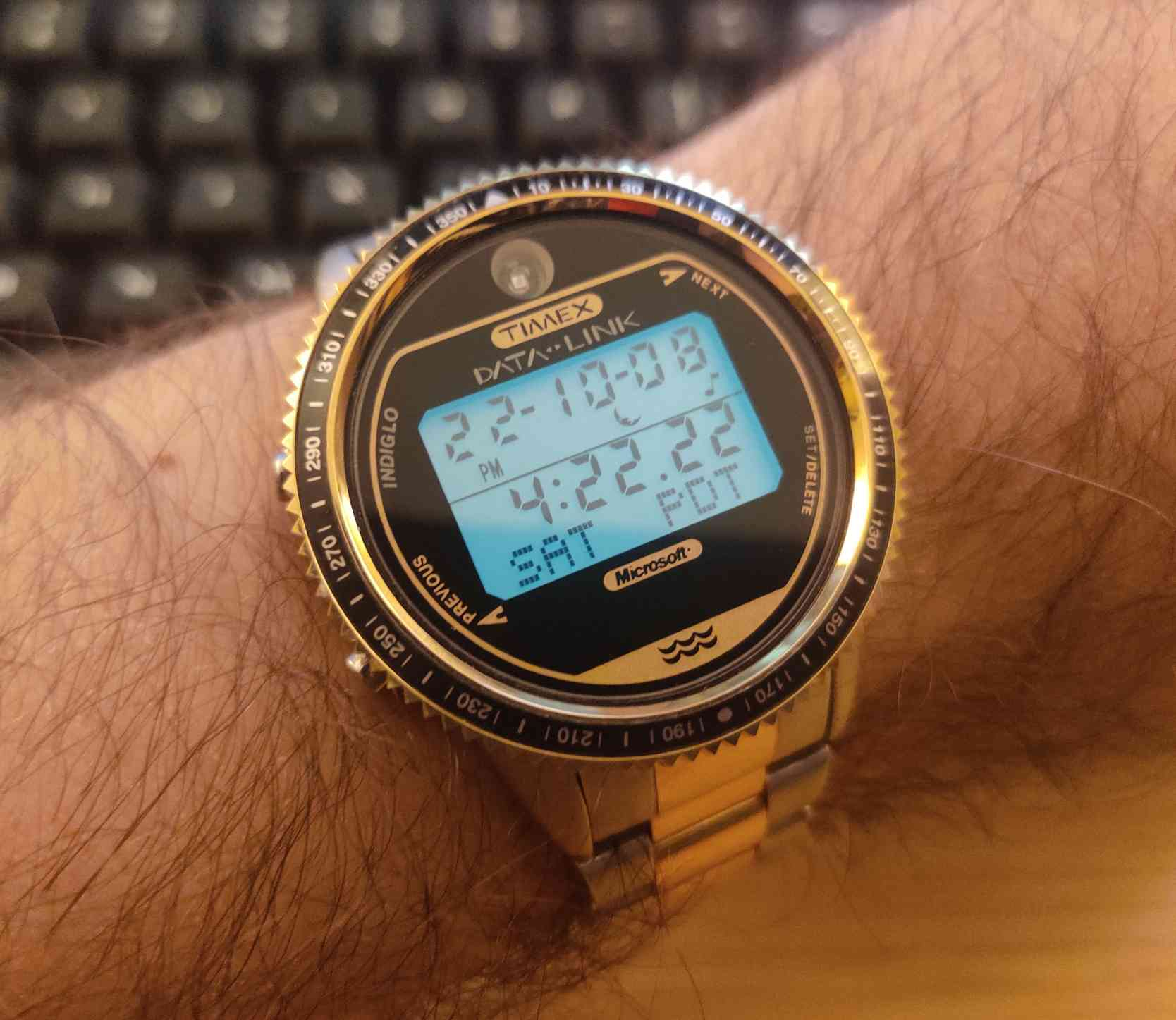
The original data transfer method involves drawing patterns of lines on a CRT monitor for the watch to receive with the optical sensor. CRTs use electron beams that draw scan lines one-by-one from top to bottom, then it returns to the top and repeats for the next frame. This means that the electron guns turn on when its drawing a white line, and and turn off when its drawing the black background. This produces flashing light as the graphics are drawn, which is ultimately received by the optical sensor and decoded by the Timex Datalink device.
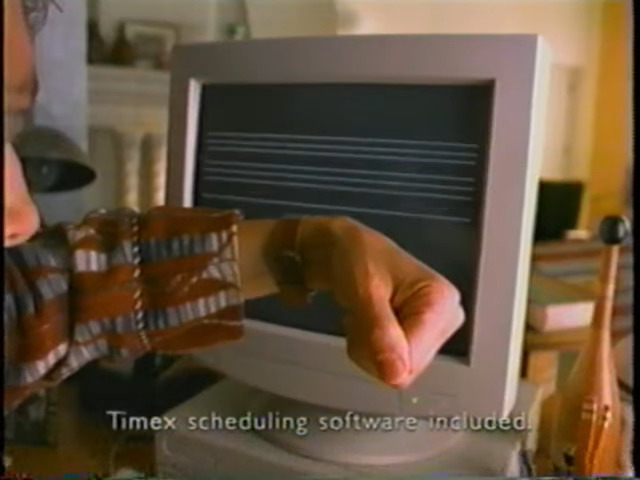
For laptop users, Timex also offered the Datalink Notebook Adapter. Instead of using a CRT monitor, the Notebook Adapter simply flashed a single LED light. This adapter is fully supported by the Timex Datalink software, and sends the same data as a CRT.
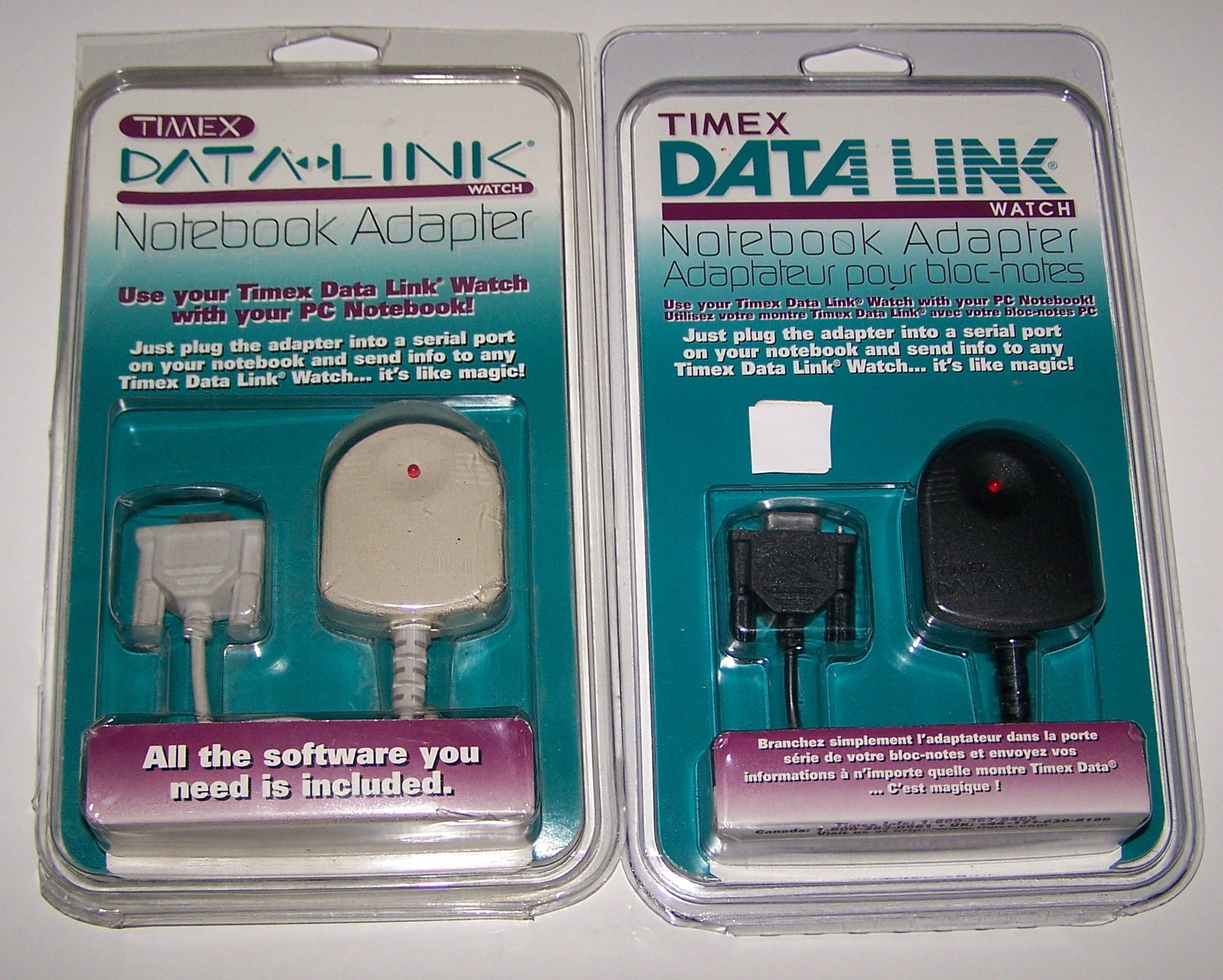
However, Notebook Adapters are rare and expensive now, so I reverse-engineered one! Here's my timex_datalink_client Ruby library communicating with my DIY Datalink Notebook Adapter to emit data to a Timex Datalink watch!
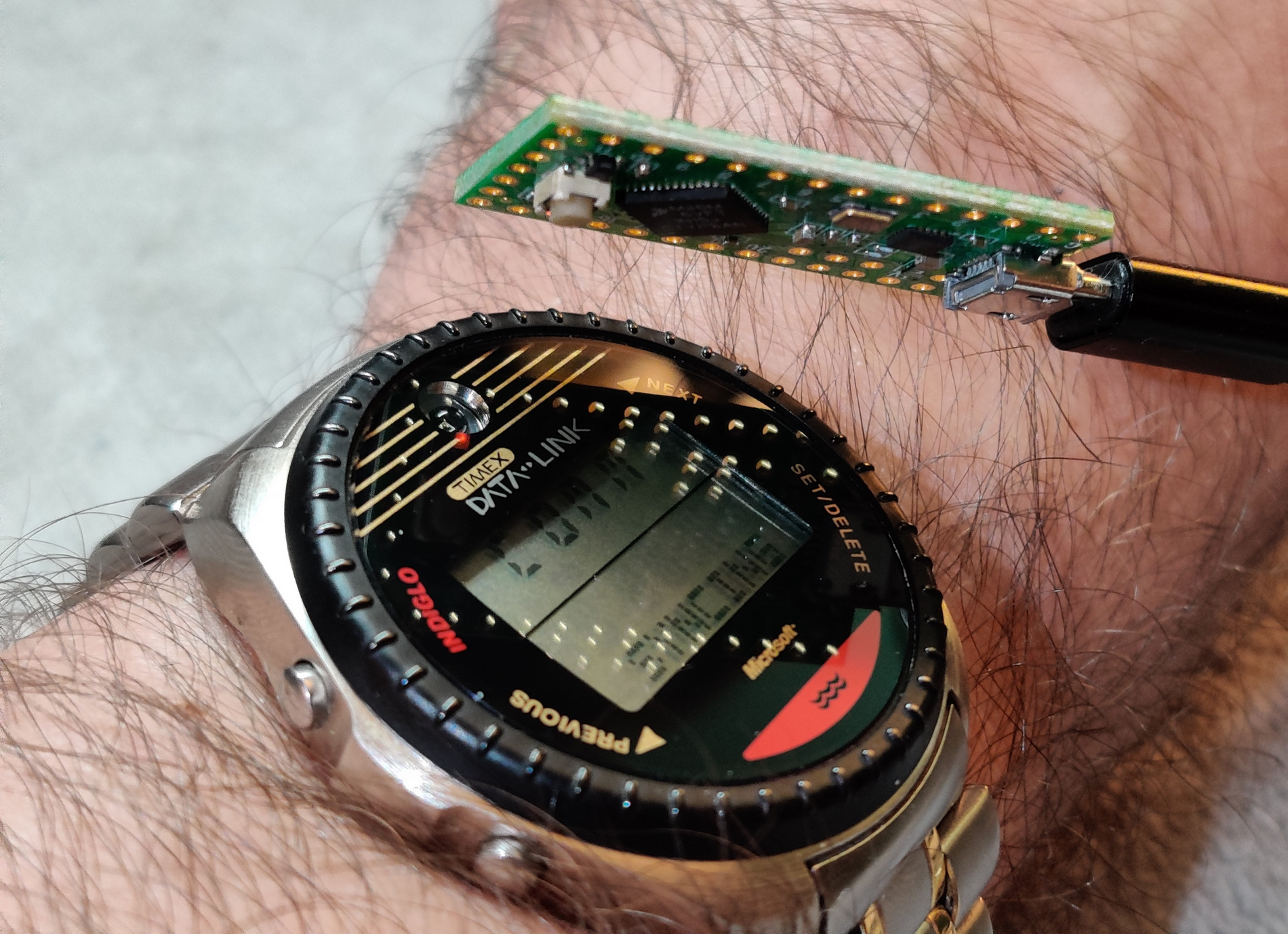
And if you want to try the reverse-engineered CRT graphics, I got you covered! I reverse-engineered that, too!
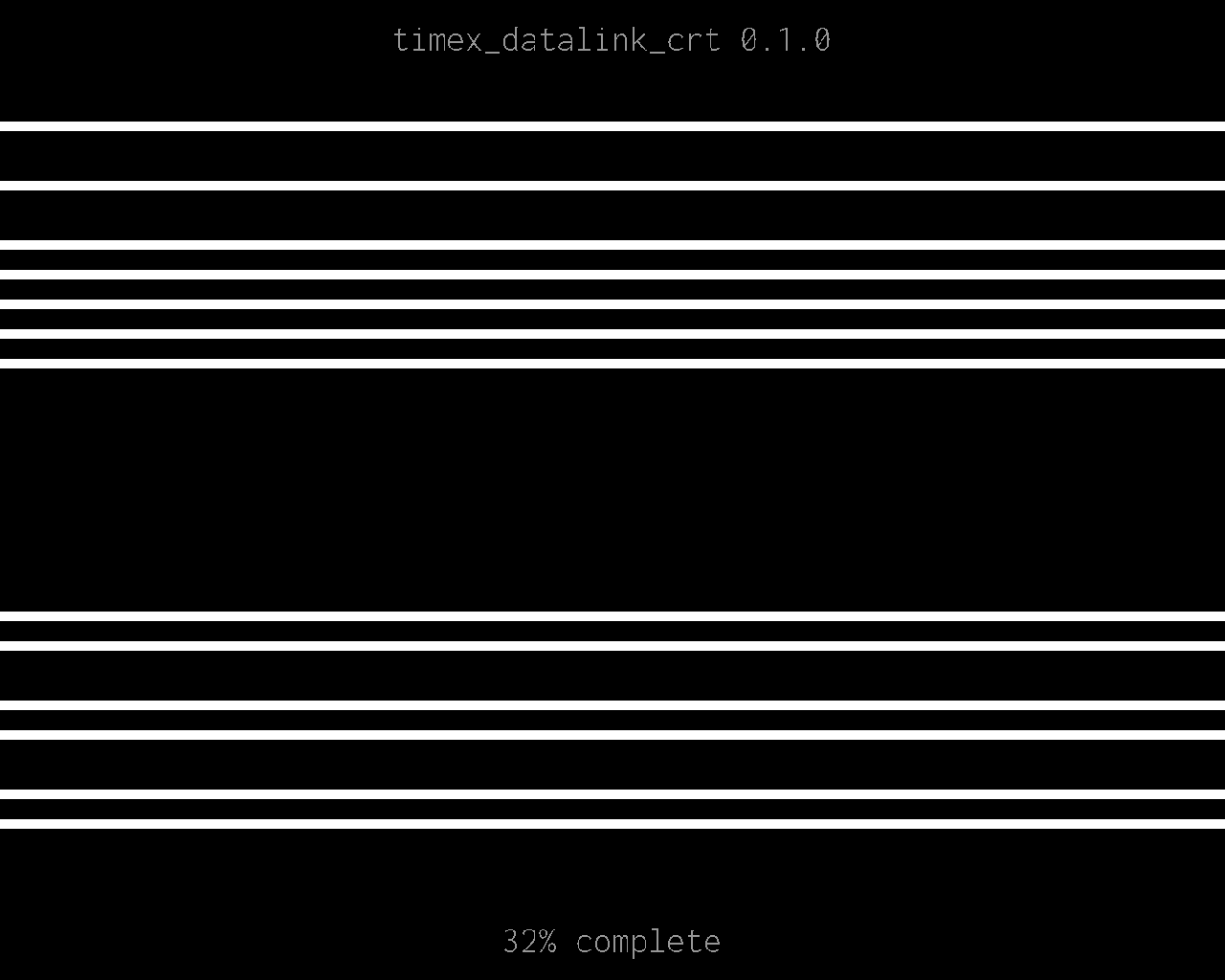
As a fun tidbit, these watches are flight certified by NASA and is one of four watches qualified by NASA for space travel! Here's a shot of James H. Newman wearing a Datalink watch on the Space Shuttle for STS-88!
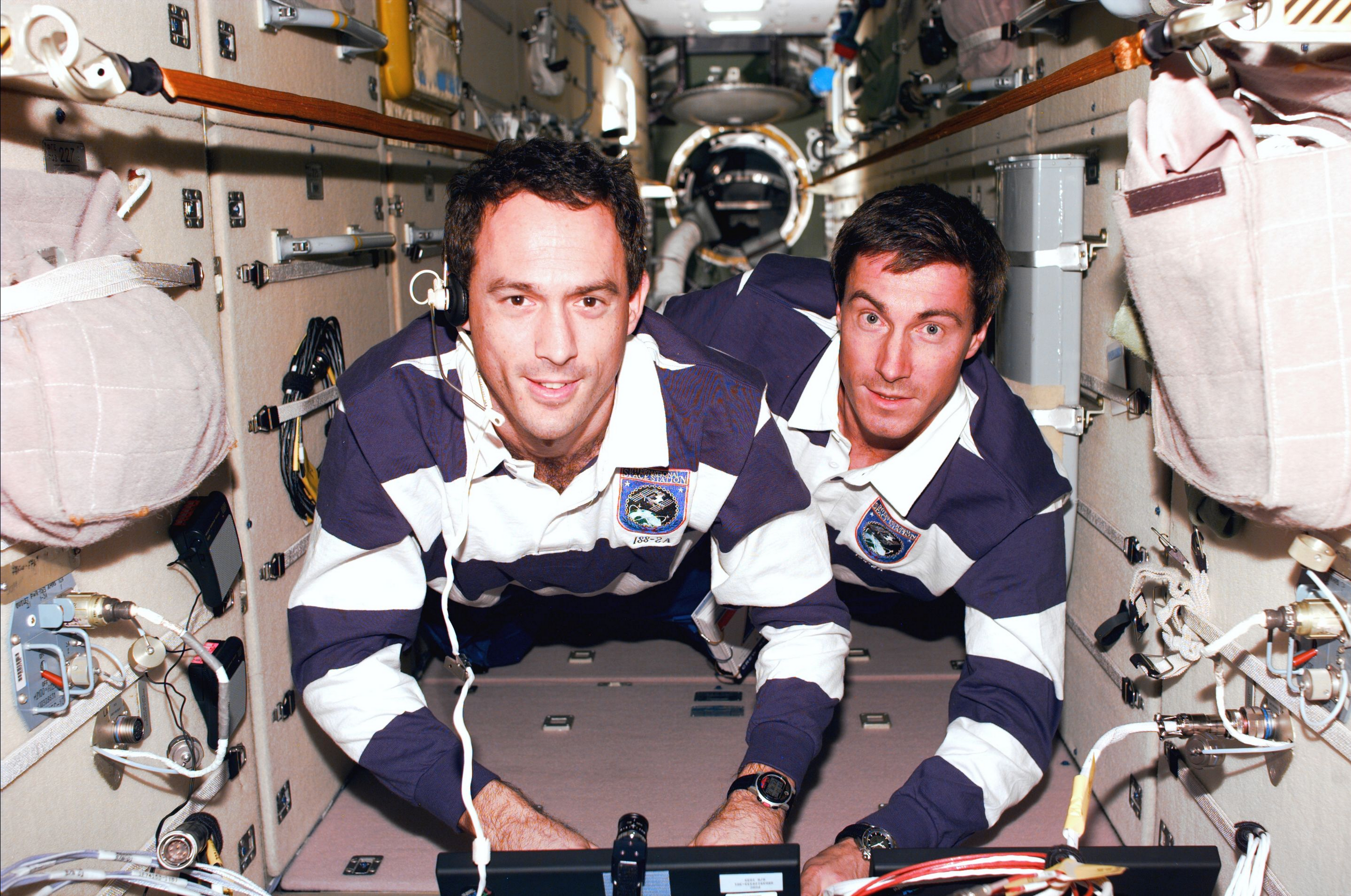
Here is my Ruby library with all options for all watches reverse-engineered into a tidy model-based syntax!
Here is a Notebook Adapter emulator that is fully compatible with all Timex software on old and new machines, and also works with my library too!
And if you have an anchor that happens to contain an electron beam and wanna try it, here's my library for drawing graphics to a CRT to transfer data!
This has all been done over months of careful effort with lots of VMs, Pentium machines, Windows 98SE, logic analyzers, and solving data puzzles little by little. On July 4th, 2023, I'm proud to announce that I have reverse-engineered every Datalink device with 100% feature compatibility! This is definitely a passion project by all means, and I thought I'd pop in and share this passion with y'all!
Enjoy!

I had one decades ago as well when they first came to the US. Mine was extremely finicky to program. I had hold it very still at a fairly specific distance to my CRT. It was rare for me to be successful on my first try and it was quite slow.
I noticed that the Datalink 50 and 70 watches (along with other protocol 1 devices) are very finicky, yeah. The Datalink 150 and 150s is much better, although not perfect. The success of the transfer needs a bright CRT monitor, and your room should ideally be free of flashing devices, like florescent bulbs and some LED bulbs.
My Notebook Adapter emulator, with a bright white LED attached, is a significant improvement. It can sync a Datalink 150 watch several feet away! In fact, the light is so bright, that if you hold it too close to the watch, it'll saturate the optical sensor and cause transfer errors simply due to its brightness. If you point the LED sideways, this fixes this issue and makes transfers work just about every time. Check it out:
This picture is from my timex-datalink-arduino GitHub repo at https://github.com/synthead/timex-datalink-arduino! Feel free to make your own!